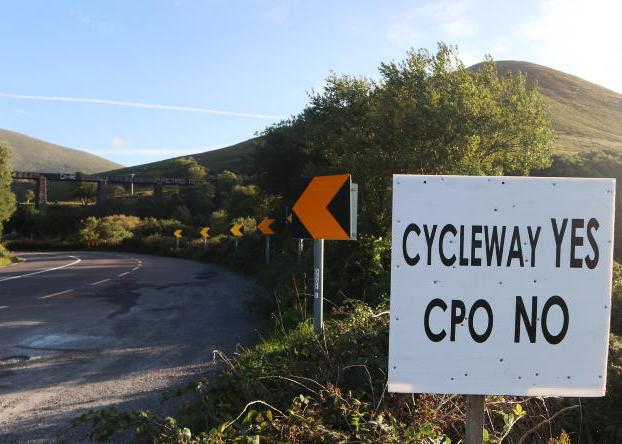Farmers are receiving higher payments on better-quality habitats on the ground in results-based schemes, Dr Derek McLoughlin of the Wild Atlantic Nature LIFE project has said.
He told a Peatlands Gathering webinar this week that when it comes to results-based schemes, flexible and adaptive management is hugely important.
“That means that we all have different ways of doing things. Who cares if you’re grazing the hills with camels or elephants, provided the lands are in good nick?
“That’s the bottom line there. We can get completely caught up in rules and regulations there and ultimately it comes down to one word and that’s quality.
“It’s trying to achieve high quality; high-quality habitats, high-quality ecosystem services,” he said.
Facility to improve
He said that trust is a huge thing between managing authorities and farmers, and the capacity to be able to deliver these kinds of programmes.
“Another enormous thing for humans, we need to have the facility to be able to improve. We can't be just told that we want better, without being able to reward better.
“We always have to consider that further delivery of ecosystem services or habitat quality should attract perhaps higher payments, or at least that can be adapted and can advised upon to facilitate better improvements and also, accounting for things like outside factors outside of farmer's control.
Higher agricultural payments accrue to higher quality habitats on the ground
“So the results based approach is something that that captures this very, very well and taking into account these kinds of principles, the idea is simply that higher agricultural payments accrue to higher quality habitats on the ground.
“Generally scored out of 10, there are some really good examples in Ireland coming from the Burren [Programme], which will be really a lighthouse programme, right through the Hen Harrier Project EIP, the Pearl Mussel Project EIP and my own project the Wilds Atlantic Nature LIFE project as well.”
He said this has the effect of incentivising farmers to improve quality and they’re rewarded by higher payments.
“As well as that idea that someone that is scoring low has the option, and has the ability, to improve through advice, and through funding, whatever that might be,” he said.
Farmer control
Colm Gavin farms in the Bundorragha catchment in Co Mayo and is taking part in the Pearl Mussel Project, a results-based scheme.
He said the feeling of control farmers have in the scheme is important.
“The choice of measures and the feeling of control on the actions are very important.
“We’re a long time being told what we can and can’t do. So we feel we’ve a sense of ownership on these actions and that’s so important, just for us to take ownership on our farm again.
“It brings back a sense of pride,” he said.
Read more
When can I expect to receive farm payments?
Farmers improve habitats in Pearl Mussel Project
Farmers are receiving higher payments on better-quality habitats on the ground in results-based schemes, Dr Derek McLoughlin of the Wild Atlantic Nature LIFE project has said.
He told a Peatlands Gathering webinar this week that when it comes to results-based schemes, flexible and adaptive management is hugely important.
“That means that we all have different ways of doing things. Who cares if you’re grazing the hills with camels or elephants, provided the lands are in good nick?
“That’s the bottom line there. We can get completely caught up in rules and regulations there and ultimately it comes down to one word and that’s quality.
“It’s trying to achieve high quality; high-quality habitats, high-quality ecosystem services,” he said.
Facility to improve
He said that trust is a huge thing between managing authorities and farmers, and the capacity to be able to deliver these kinds of programmes.
“Another enormous thing for humans, we need to have the facility to be able to improve. We can't be just told that we want better, without being able to reward better.
“We always have to consider that further delivery of ecosystem services or habitat quality should attract perhaps higher payments, or at least that can be adapted and can advised upon to facilitate better improvements and also, accounting for things like outside factors outside of farmer's control.
Higher agricultural payments accrue to higher quality habitats on the ground
“So the results based approach is something that that captures this very, very well and taking into account these kinds of principles, the idea is simply that higher agricultural payments accrue to higher quality habitats on the ground.
“Generally scored out of 10, there are some really good examples in Ireland coming from the Burren [Programme], which will be really a lighthouse programme, right through the Hen Harrier Project EIP, the Pearl Mussel Project EIP and my own project the Wilds Atlantic Nature LIFE project as well.”
He said this has the effect of incentivising farmers to improve quality and they’re rewarded by higher payments.
“As well as that idea that someone that is scoring low has the option, and has the ability, to improve through advice, and through funding, whatever that might be,” he said.
Farmer control
Colm Gavin farms in the Bundorragha catchment in Co Mayo and is taking part in the Pearl Mussel Project, a results-based scheme.
He said the feeling of control farmers have in the scheme is important.
“The choice of measures and the feeling of control on the actions are very important.
“We’re a long time being told what we can and can’t do. So we feel we’ve a sense of ownership on these actions and that’s so important, just for us to take ownership on our farm again.
“It brings back a sense of pride,” he said.
Read more
When can I expect to receive farm payments?
Farmers improve habitats in Pearl Mussel Project









SHARING OPTIONS